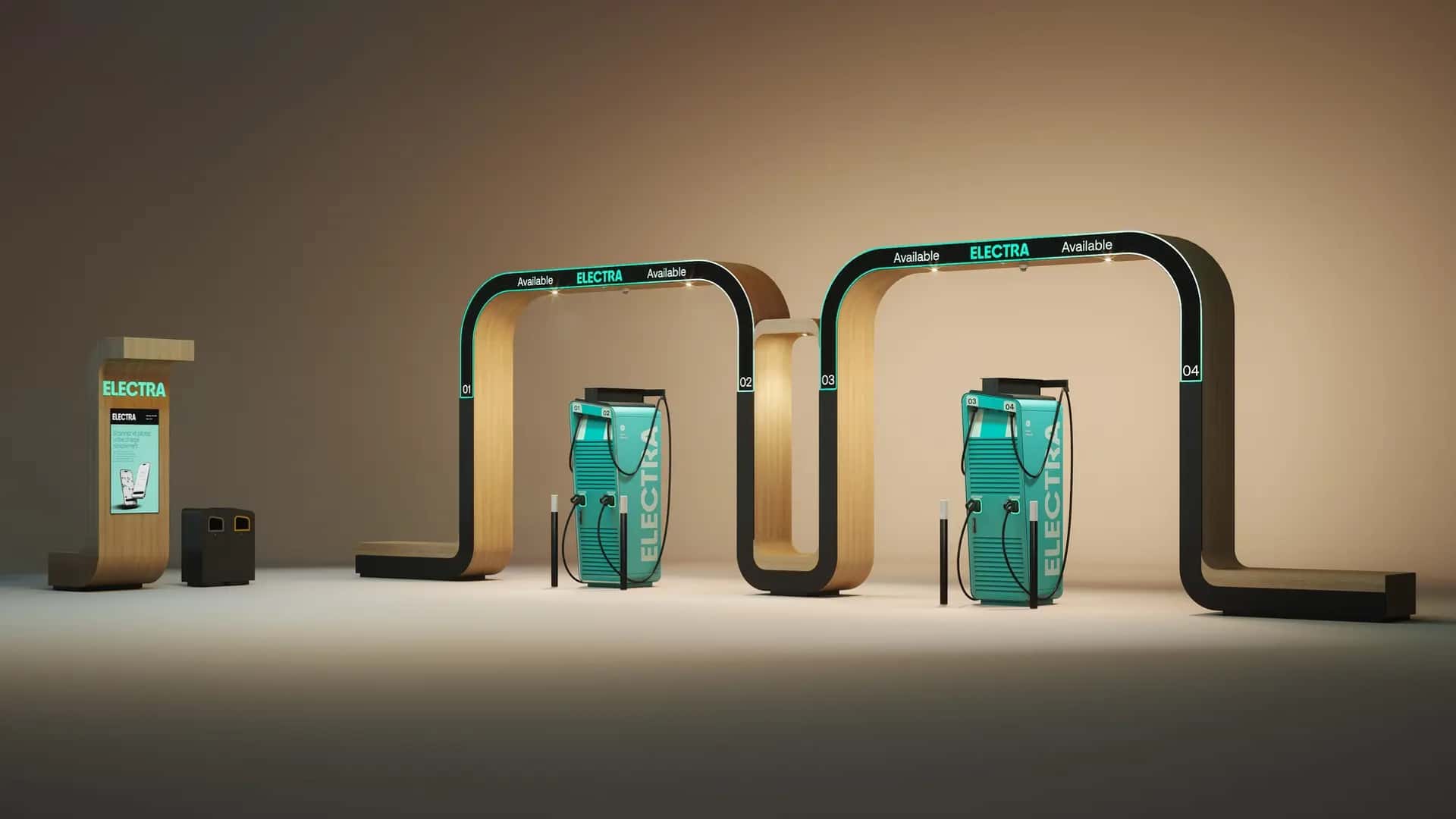
If you’re a regular electric vehicle driver, chances are you’ve driven past public fast-charging stations without even realizing that they’re there. Compared to gas stations, charging hubs are less visible from afar, even though charge point operators are now making the newer stations more distinctive and visible.
Over in Europe, a young French company is rethinking that problem and proving that charging stations can be practical, noticeable from afar and, erm… kinda sexy.
Charge point operator Electra was only founded in 2021. In just a few years, it has built a network of more than 500 stations across Western Europe, most of them in France, with new sites quickly rolling out in Germany, Italy, Belgium and Spain. By 2030, Electra aims to operate 2,200 stations across nine European countries.

What sets Electra apart is its focus on design. The concept of having screens at charging stations is nothing new, but Electra has found a way to use them with both creativity and purpose.
In late 2024, the company unveiled its Electraline concept. The design integrates LED screens into the canopy pillars, making stations visible from a distance while also displaying key details like price per kilowatt-hour, charger availability and even the charging status.
You can even reserve a charging spot in advance. And if you like, you can have your name pop up on the LED screen as you pull in. That means you won’t have to circle the parking lot and you’d be spared from guessing which stall exactly is free.
This may not be a problem at charging stations in suburban areas where utilization rates are relatively low. But in urban centers like New York where charging stations are often crowded, it would save you time if you knew exactly where to pull in.

Electra also seems to be using Alpitronic Hyperchargers, which are common in Europe and known for their reliability. These charging stations are also becoming increasingly popular in the U.S., with Alpitronic projected to be second only to the Tesla Supercharger network in the number of station deployments this year, according to charging data company Paren.
These stalls can dispense up to 400 kilowatts of power. If your EV can accept that much power, a 10-80% charge would take just 20 minutes. I recently tested these stalls at an Ionna Rechargery in Scranton, Pennsylvania, and it was my best charging stop ever.
The company claims all electricity coming out these chargers comes from 100% renewable sources. It uses Europe's Guarantee of Origin system, which traces the sources of electricity, including the location and date of production as well as the source (solar, wind, hydro, etc.). More than half of the European Union's energy mix came from renewables in the first half of 2024.

Granted, charging an EV comes with more variables than filling up a gas tank. Drivers have to think about connector types (CCS or NACS), electricity costs, charging speeds, wait times and heck, even payment methods, whether that’s plug-and-charge, app-based, or a simple tap-to-pay using your credit card.
But smart designs like Electra’s show how all those moving parts can be pulled together and presented clearly to drivers. What could be a confusing process can actually be a seamless experience if the end goal is to make charging easy for everyone.
Have a tip? Contact the author: suvrat.kothari@insideevs.com







